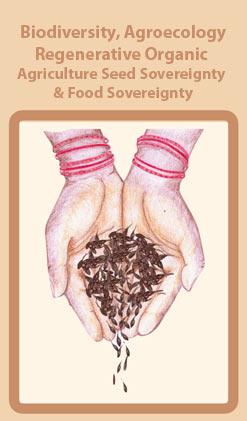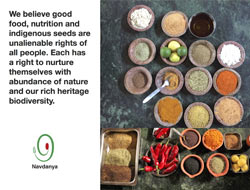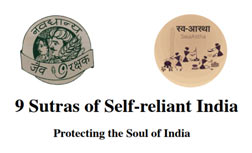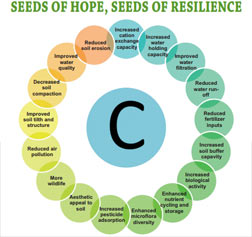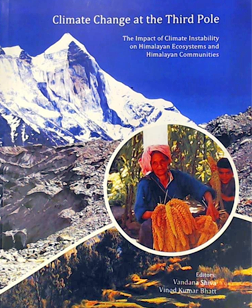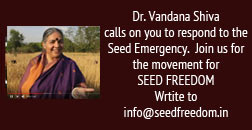Representatives of the Dongria Kondh, both men and women were travelling from Niyamgiri to attend the conference in Delhi and narrate the atrocities Vedanta is committing against them and the forests when, in a shocking incident - signal of Vedanta’s rule of terror - they were beaten and abducted by armed men, later found to be policemen. The two Dongria leaders Lado Sikaka and Sana Sikakawere untraceable till Kalahandi’s MP intervention, after which they were finally released.
| Men: | Women: |
| Kalia Sikaka | Rinja Sikaka |
| Drinju Sikaka | Sinde Sikaka |
| Sima Sikaka | Pandra Kadraka |
| Sundri Krusiki | |
| Minjadi Sikaka |
The rest of the convoy was forced back to set an alarm in the village. Siddhart Nayak, President of Green Kalahandi Movement, who was leading the delegation, described the terror of being stopped, threatened with a pistol and left for hours in the forests without means of communication. The account of the story in his words is attached.
Niyamgiri means the mountain (Giri) that upholds the Earth and the law of the Universe (Niyam). These mountains are the ancestral domain of the Dongria, Kutia and Jharania Kondh; the mountains not only provide them with life and livelihoods, they are also worshipped as the upholders of the Earth and the laws of the Universe. The hills are covered by dense forests, rich in biodiversity; they are also bauxite rich. While local communities as well as environment and social scientists see this mineral for its int rinsic value of water conservation, preciousto support people, agriculture and the forests, Vedanta’s mining corporation only sees Bauxite for its role as the raw material for alumina production, and thus the hill not as a common heritage to preserve, but as a profit making business for the few rich and powerful.
The Dongria Kondh and other forest communities live under the law of “Niyam made the fruits and grains and said “Now live on what I gave you. Not a single tree shall be cut, not a single animal killed”. They don’t require a legal framework to determine their access and usage rights, for sustainability and respect guide their every action; they don’t demand individual rights for they believe in community, in common management, in sharing Earth’s bounty, a point emphasized by Pinky Anand.

In 2003 Vedanta signed a Memorandum of Understanding with the Orissa state government regarding the construction of a refinery for alumina production, a coal-based power plant, and a mining development at Lanjigarh in the district of Kalahandi. In 2003 Vedanta applied to the Ministry of Forests and Environment (MoEF) for an environmental clearance for the refinery. In its application the company provided wrongful information to the effect that the refinery would not require forest land.
Vedanta is not only violating every law of the land, it is also corrupting the entire administrative apparatus of India, Orissa, Niyamgiri and also Lanjigarh where the alumina refinery is located. Even worse, it is spreading terror in the region – the abduction of the tribal leaders being the latest example.
The Orissa Government has now increased the refinery’s capacity six-fold.
It is for these reasons that Niyamgiri has come to represent a test case for the defense of our democracy and peace, our forests and the rights of tribals. “If we fail in Niyamgiri” says Dr Shiva, Director RFSTE and a member of the expert group drafting FRA, in the opening remarks “we won’t be able to protect the rights of people and nature anywhere else”. The policy dialogue was meant to give support and solidarity to Niyamgiri tribals, to strengthen community forest rights and environmental laws of the country and to deepen the democratic process to maintain peace and justice in our tribal areas.The rights of Mother Earth, of the forests and human rights are inseparable. It is this message that the policy dialogue wanted to reaffirm through the voices of different stakeholders.

From a legal standpoint, Pinky Anand - Senior Advocate (SC) - and Sanjay Uphadyay –one of the framers of the Act - stress in fact that the issue is not one of absence of laws, that are rather plenty and fragmented, but of lack of implementation, a point that was reiterated by most speakers.
In reality, as T.K. Oommen - eminent sociologist, B.D. Sharma – one of the architects of PESA and member of the expert group for FRA, and Vandana Shiva remind us, the rights the tribal and forest dwelling communities are fighting for are rights to the Earth and its produce; they derive from Mother Earth and hence they are natural rights; they shouldn’t depend on an Act in the first place.
Much of the problem, the speakers conveyed, is that neither the Government, nor the urban public deeply understand the relationship that bonds the tribal and forest communities to their land and the environment. These communities have informally implemented the law of nature for centuries; as opposed to the law of loot, of greed, and corporate terror that is in place today, they say, this doesn’t need regulation.
Still as Sanjay Uphadyay reminds us, the community rights are “already vested” and it is a duty of the State to respect them, not grant them!

The question of State authority and power here raised ran throughout the debate.
B.D. Sharma raised for example the issue of Gram Sabhas, which as prescribed in PESA are empowered bodies competent to manage own affairs and natural resources according to customs and traditions; yet the issue arises as the “top leadership doesn’t allow for people to be supreme”. Before Independence, people living in the forests had full control over the natural resources as the laws of the land did not extend to tribal and forest areas that were considered “excluded”. Today, after PESA, the State coming in with no legitimacy over Scheduled Tribes areas is an example of the colonial thinking our elites are still seeped in, he remarks.
Usha Ramanathan, who headed one of the MoEF committees to look into Niyamgiri’s case, takes this point forward, stressing on how it is the people, not the Government, to exercise democracy. In cases like Niyamgiri, the Government itself is acting in violation of the Constitution and the law; we members of civil society should not question how the Government is using its powers; we should, practicing democracy, assert that it doesn’t have such powers in the first place! “The State” she says “has Constitutional obligations and does not have absolute powers”.
She goes on to say that much of the problem lies in our understanding of development and in the imposition of our urban paradigm to communities with a unique lifestyle
Vedanta claims it will bring development, it will bring employment and improve livelihoods. Ramaswami R. Iyer, Former Secretary of Water Resources, Government of India, contested this by bringing us back to the Coca Cola battle in Kerala, another instance where private companies on the loose exploited natural resources with no care for consequences on people or the environment: employment, yes, for how many people and for how long? Will this employment make up for exhausted groundwater or for the ecological imbalances? These damages are irreversible.
T.K. Oommen follows on this stating that while some human displacement is perhaps inevitable, it is paramount to minimize it, and adequately compensate the displaced, after receiving their informed consent. Neither holds true in the case of Niyamgiri, where, he says, we are simultaneously witnessing an ecocide, aquacide, culturecide eventually leading to silent genocide due to displacement.
Unfortunately though, the approach followed by the Centre in forest and tribal areas has been one of “control” or “develop”, says Uphadyay. Questions of good governance or empowerment were never raised. Bharat Thakor of Ekta Parishad, picks up on this by saying that the lack of understanding and awareness amongst affected communities makes perhaps individual pattas a more workable solution, till stakeholders are empowered.

Rajya Sabha MP Mani Shankar Aiyas also focused on the need for empowerment, but like many others he advocated community rights saying: ‘The tribes need to feel empowered and free which is only possible when the centre involves them in the process of development.’ All the speakers agreed that the approach to be followed should be one of community empowerment: this stresses on the paramount essence of both the notion of common management of resources, and on the fact that these communities know what they want.
The Dongria Kondh through the voice of Lingraj reiterate that they are well aware of what they want: they do want development, but a sustainable one, that respects their traditions and customs. They have demanded schools, People have the right to refuse our urban industrial paradigm of development; if the process is leading to immiserization of locals, it can’t be called development, says Ramanathan.
Congress general secretary Digvijay Singh said tribals and other forest communities should be made stakeholders of their own development, and also part of the market economy the country has embraced. "The way forward in Niyamgiri” he said “is to make the forest dwellers owners of their own produce. The benefit of any capital investment is their inherent right."
Finally, all speakers agreed that in the immediate future, the efforts should concentrate on creating a comprehensive legal framework that addresses all issues thoroughly, in the place on the individual Acts currently in place; there is also need for a review of existing legislation to do away with all loopholes and inconsistencies that allow Vedanta and companies alike to carry on with their national loot.
In the words of Bakt Charan Das “We have to choose what is more important, the corporate leaders or millions of people in the countryside.
We must use mass agitation. We can assemble. We can go on hunger strike in Gandhiji’s way. This is how community rights must be brought to the country. We can decide. With this I conclude.”
The last speaker, Komthi Maji of the Save Niyamgiri Movement, reiterated Niyamgiri’s cry for help: he demands from the Government, NGOs and society to mobilize and stop the violence against tribals and forest communities, the environmental exploitation for the benefit of the few and save Niyamgiri, the sacred mountain that upholds the Earth.
The N.C. Saxena Committee appointed by the MoEF to look into forest rights, tribal and cultural issues related to Niyamgiri has issued its report on 16th August 2010. After evaluating the ecological costs of mining, human costs of mining, violations of Forest Rights Act, violations of Forest Conservation Act, violations of Environment Protection Act, violations of conditions of clearance under EPA granted to refinery, very limited relevance to expanded refinery, they concluded that :
“In view of the above, this Committee is of the firm view that allowing mining in the proposed mining lease area by depriving two Primitive Tribal Groups of their rights over the proposed mining site in order to benefit a private company would shake the faith of tribal people in the laws of the land. Since the company in question has repeatedly violated the law, allowing it further access to the proposed mining lease area at the cost of the rights of the Kutia and Dongaria Kondh, will have serious consequences for the security and well being of the entire country.”
(http://moef.nic.in/downloads/public-information/Saxena_Vedanta.pdf)


